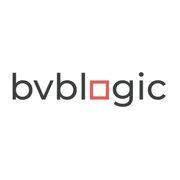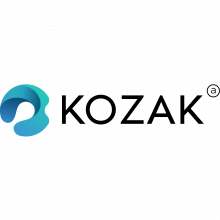Explore Top Azure Platform Companies in Ukraine
Use the advanced filter to find companies near you or refine the results Last updated in: January, 2026
Building complex B2B SaaS solutions/software for AdTech & MarTech industries via different world-known API integrations
Web Development and Custom Software Company
bvblogic is a technology company with a passion for innovation, which creates reliable and efficient IT products and solutions, solves globally import...
We deliver software products, managed IT outsourcing services, and solution engineering to world-renowned customers.
Siliconfit empowers innovators with insights, news, and resources on the latest in AI, tech, and startup trends.
We deliver functional mobile and web solutions that meet your business goals, resonate with users, and drive commercial success.
Skilled professionals for important projects
Game Development | AR/VR | 3D & 2D Art Production
Utilizing cutting-edge IT technologies our data-centric company empowers businesses with efficient tools customized to their needs.
Acodix delivers tailored tech solutions, excelling in web development, cloud, APIs, and consulting. Trusted by startups and enterprises for growth🚀
Honest custom web & mobile data-driven solutions
CITRUSDEV - mobile, hardware, and web development for IoT projects
Globaldev is your most reliable partner in crafting business-focused digital solutions and building high-performance teams across the globe.
SOLEAD - custom software solutions since 2019. Remote, dedicated IT teams. Experienced engineers, competitive pricing. Visit our website for more.

Chernivtsi, Ukraine Head office in: United States
Get things Solvd | Global QA & Software Engineering Company
We are advisors and engineers solving business challenges with technology and AI who are ready to support you on your digital transformation journey.
Your Best Tech Partner: Where Innovation Begins
We are an expert AI dev team focused on advanced AI technologies such as Generative AI, Computer Vision, Data Science, 3D Reconstruction and others.
Filter Azure Platform Companies in Ukraine by Cities
Find the right tech company near you or from a specific city. Some of the best companies might be located in smaller cities.
Find more Azure Platform companies around the world
TechBehemoths is the world's most advanced and user-friendly platform to match IT Companies with real clients without hustle.
IT Industry in Ukraine: Insights and Profile
IT is the most advanced and popular field in Ukraine. The Ukrainian IT industry is expected to reach $3.74 billion in value by 2025, according to Statista. The local software development community is expected to reach 300,000 professionals in 2025 to 450,000 by the end of the year.
Ukraine ranks 4th in the world by the number of tech workers after the United States, India, and Russia. Moreover, its IT workforce is expected to surpass the 450,000 mark by the end of 2025. The current hourly rate for a software engineer in Ukraine is $10-$120, which is budget-friendly and doesn’t compromise the quality. This country is a perfect choice for new R&D facilities, outsourcing software development, or hiring talented tech professionals. Top tech companies in Ukraine include GlobalLogic, EPAM & EPAM Digital, Luxoft, and others that work on developing the country’s tech ecosystem.
Why Should You Work With Ukrainian IT Companies?
The Ukrainian tech industry has benefited from a close cultural fit with European and Western markets as well as a central time zone. This means that the cultural fit comes from both a shared European history as well as working regularly with international businesses. Since 2013, an agreement between the European Union and Ukraine has also made it easier for Ukrainians to travel throughout Schengen to build business relationships.
Additionally, the considerably lower prices compared to other European countries made Ukraine a good destination for sourcing out talent and workforce with relatively competitive skills and education. Hiring tech experts from this country brings the possibility for businesses to optimize their software development efforts, save costs, and resources.
What to Be Aware of When Working With Ukrainian IT Companies
Due to the cheap prices Ukrainian tech companies offer, the market perception tends to take professionals and companies based in Ukraine as an outsourcing destination or a budget project alternative to other similar European opportunities. Additionally, cybersecurity, piracy, and tech skills raise questions about hiring or not a Ukrainian web agency for web projects.
How Reliable Are Ukrainian Companies
Having the association agreement with the EU, Ukrainian companies starting in 2013 entered a new phase of cooperation and received more access to the European market, business culture, and IT environment and infrastructure. It is considered now, in 2025, more reliable than it was before, and visible progress was registered; but with the regional background, it is still far behind its neighbors in terms of competitiveness and skills.
Ukraine in the Eastern European IT scene
Eastern Europe emerged as a vibrant tech hub that provides talented tech experts at competitive rates. Ukraine is an important tech hub in Eastern Europe, alongside other countries like the Czech Republic, Bulgaria, Moldova, Romania, Slovakia, and Hungary. It is characterized by high literacy and multilingual abilities, a rich talent pool, a focus on STEM education, and original ideas and perspectives. Developers in Ukraine have different hourly rates, based on their experience and the industry they work in: Software (<$26), Cybersecurity ($21.42-$28.98), and AI & ML ($21.75-$29.43). Ukraine’s tech sector is still growing and provides multiple benefits for people who look to hire a developer from this country.
How the Ukrainian IT Industry Relates to the Neighboring Countries
With three large competitors as neighbors, Ukraine, with an IT industry equal to $3.74 billion, has been struggling to become the largest tech hub in the region. Compared to Russia, with its IT industry worth $8.06 billion, Ukraine enjoys a similar IT infrastructure but has more opportunities due to its access to the EU market. Poland, with its IT industry market equal to $11.28 billion, on the other hand, has a considerable advantage due to advanced facilities and market investments, which make it more attractive than Ukraine. Also, Romania’s IT industry, which is worth $1.36 billion, is a strong competitor in the region that claims leading positions in software development and IT infrastructure development.
Because of the present conflict in the country, the IT industry is affected, and its progress faces some challenges. Overall, Ukraine has a strong position in the region and in Europe, with a massive IT presence that allows companies based there to attract more customers from different segments. However, the trends show that market preferences move to another price segment than the one Ukrainian companies are.
What is Azure Platform and what are its benefits for your projects?
Azure Platform, developed by Microsoft, stands as a versatile cloud computing platform known for its ability to empower organizations with a wide range of cloud-based solutions. It offers a comprehensive suite of services and tools designed to support businesses in their digital transformation journey.
There are more than 2722 IT companies that specialize in providing Azure Platform services to businesses across the globe. These companies serve as strategic partners, helping organizations leverage Azure to achieve their goals. Notable IT service providers in this domain include Accenture, Capgemini, Infosys, and Deloitte. They offer a spectrum of services, from Azure consulting and implementation to ongoing management and support.
Azure Platform service providers employ a combination of tools and technologies to deliver effective solutions. This may include Azure DevOps for continuous integration and deployment, Azure Monitor for performance tracking, and Azure Resource Manager for resource provisioning and management. It's essential to differentiate between Azure and Azure Platform: while Azure refers to the cloud platform itself, Azure Platform encompasses the set of services, solutions, and expertise offered by IT companies to optimize Azure for specific business needs.
Azure Platform is not limited to a single service but comprises a rich ecosystem of interconnected offerings. Related services include Azure Virtual Machines for scalable computing, Azure Kubernetes Service for container orchestration, Azure AI for artificial intelligence capabilities, Azure Data Services for robust data management, and Azure Security Center for enhancing security posture.
Selecting the right IT company for Azure Platform services is a critical decision. To make an informed choice, consider factors such as the provider's experience with Azure, client references, industry expertise, and the range of services they offer. Assess their ability to align Azure solutions with your business objectives, scalability requirements, and ongoing support capabilities.
Azure Platform services find applications in a wide array of projects, including:
-
Enterprise Resource Planning (ERP) Systems: Implementing scalable ERP systems to streamline business processes.
-
E-commerce Solutions: Building and managing high-performance e-commerce websites and platforms.
-
Big Data Analytics: Leveraging Azure's data analytics tools for data-driven insights.
-
IoT Solutions: Developing IoT applications for device management and data analysis.
-
AI and Machine Learning Projects: Building intelligent applications for predictive analytics and automation.
-
Cloud Migration: Migrating on-premises infrastructure to Azure for cost savings and scalability.
-
Cybersecurity Initiatives: Strengthening security through Azure's robust security services and monitoring capabilities.
-
Hybrid Cloud Deployments: Implementing a hybrid cloud strategy for data backup, recovery, and business continuity.






















